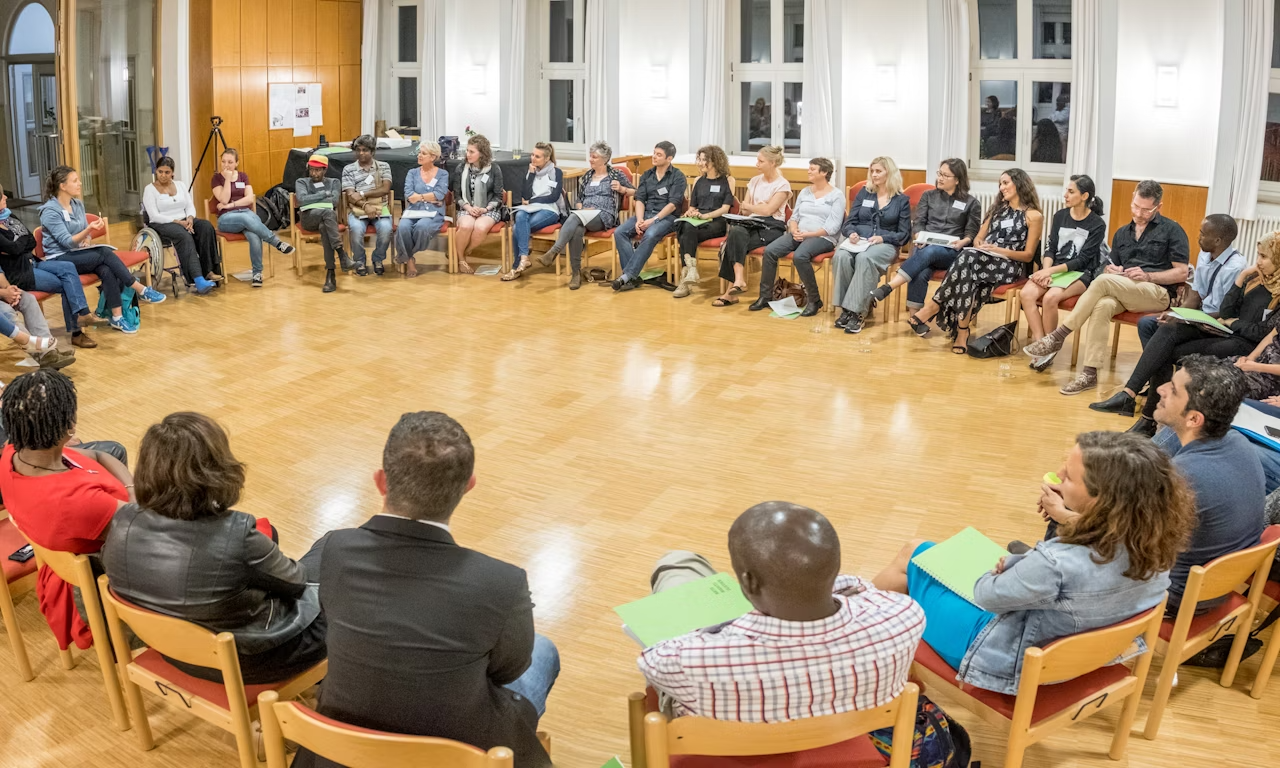Reflections on My First Ever Arts Rights Justice Academy
Germany
I am Ray Mwareya, a journalist and editor of “Women Taboos Radio” in Zimbabwe and Southern Africa. The UNESCO Chair in Cultural Policy for the Arts in Development at the University of Hildesheim in Germany held its first-ever Arts Rights Justice Academy from August 24 to August 31, 2017, in the sleepy German town of Hildesheim. I was glad to attend as one of the chosen participants of the 185 applications received from across the world.
“The 2017 Arts Rights Justice Academy was a week of bliss, critical thought, friendship making, and robust debate about the meaning of “Artistic Freedom.””
—
At the Academy, I was delighted to meet and mingle with 30 young professionals from Italy, Sweden, Algeria, Palestine, Rwanda, the United States, and as far as Mexico, India, and more.
The northern German summer sunshine brought intense humidity upon us, but we could ask for better facilities at the University of Hildesheim.
The academy itself was filled with 40 people passionate about the sensitive subject of artistic freedom and artists at risk. This was a real-life topic and not some academic exercise. I say so because we had in our midst artists who had been exiled from countries like Syria, Iraq, Sudan, Bangladesh, and Iran. Their stories of escaping to freedom were harrowing yet inspiring. We listened as they rehearsed how brutal laws against women artists had led them to be jailed for blasphemy for the simple act of performing a poem. It was sobering to hear how some without passports made hasty plans to seek protection in Norway and Western Europe.
Our 10 tutors were men and women of repute in the field of artistic freedom. I will single out the former UN Rapporteur on Cultural Rights Farida Shaheed from Pakistan. Her presentation was eye-opening. She explained: Artistic freedoms are meaningless unless they are clearly defined in simple language; cultural rights are the norms agreed by society on how to conduct in business, religion, or education can be pursued; artistic rights can be best enjoyed by artists when society sees the important value of poets, musicians, painters, performers, etc.
“Their stories was a real lesson that – the struggle for artistic freedom is the struggle for human dignity. Freedom of society is never complete unless linked to the freedom of artists.”
— Farida Shaheed, Former UN Special Rapporteur in the field of cultural rights
My best experience of the academy was when I met Abazar Hamid, a towering figure of the Sudanese music scene. As a journalist, I was immediately charmed by Abazar’s story and music experience. Abazar grew up in a music band that was called “the Beatles of Sudan” in an Islamist country. Massive state censorship meant that his band could only perform songs that were pre-approved by the Sudanese government censors. When the civil war in Sudan intensified and the country fell into a split, Abazar was brave enough to go into war-torn Darfur and compose the “Rainbow Songs” that promoted peace and reconciliation when it became clear that Sudan was going to be divided into two countries. His “Rainbow Songs” project angered the government of Sudan so much that they put him under surveillance until he escaped to Norway via Egypt. Abazar and his family have since been living in Norway under the protection of the ICORN artists refuge program.
Abazar’s story gripped me so much that I interviewed him and wrote a news article about his remarkable music that defies the dictatorship of President Omar Al-Bashir in Sudan. My interview with Abazar was published in Arts Everywhere Magazine, Canada, much to the delight of Abazar and readers.A final joy that I experienced during my time at the Arts Rights Justice Academy occurred in Berlin on the last day of training. After a half-a-day long forum open to the public we attended a music band rehearsal by Syrian refugees in Berlin at a restaurant operated by Syrian refugees. This was soul-soothing, traditional folklore Syrian jazz music whose lyrics spoke about a nostalgic homeland that has been torn apart by war. I don’t understand the Arabic language, but its music with feverish drum beats, wire-string Syrian guitars, and jaunty saxophones had us dancing until 2am in the Berlin morning.Syrian jazz music by a Syrian refugee band was an ode to a wonderful academy experience. My goal is to make sure that artists in my home country, Zimbabwe, are aware that music, poetry, painting, dance, and writing are not luxuries but ingredients that are vital in achieving a healthy, democratic society.
Ray Mwareya is the founder of Women Taboos Radio and was a participant of the 2017 Arts Rights Justice Academy.
UPDATE on March 6, 2018: The UNESCO Chair ‘Cultural Policy for the Arts in Development’ at the University of Hildesheim (Germany) has opened the application for the for the second edition of the ARJ Academy 2018. This one-week advanced training course focuses on knowledge-exchange on the threats to artistic freedom worldwide, on understanding the legal and rights framework and the role of civil society in the protection and defense of the right to artistic freedom. To learn more about the academy and how to apply, click here.







